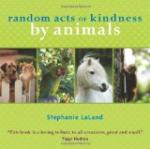When I say domestic, I mean such as we are used to see in our houses, streets, and fields. Lions, tigers, elephants, and such as are shut up in caravans, or only taken about for a show, do not belong to these; though I am not sure that I shall not have a word or two to say about bears and monkeys. I want to amuse you, my young friends, and to make you think a little too; for all the good things given us of God become more valuable to us when we think about them in a right way. Jack knew this: he used to rub his forehead with his fingers’ ends, shake his head wisely, and spell, “Very good think.” I hope you will judge the same; and when you have come to the end of my little book, be able to say you have had a “very good think” too.
[Illustration]
[Illustration]
CHAPTER II.
The horse.
The great mistake that people seem to me to make about animals is this: they fancy that they must be frightened into obedience, and kept from disobeying their masters by being made afraid of punishment. I dare say that animals, like human beings, often need correction; but two things are necessary to make such correction useful. One is, not to punish them too severely, which only hardens them in rebellion; the other is, never to hurt them at all except for a real fault—something that they know to be a fault, and know that they will be punished for doing. Otherwise, the poor beast, not knowing when or why it may be beaten, gets confused and foolish, and does wrong, as any boy might do, from being in a great fright. The truth is, that the animals are very sensible, and very willing to do their best. They are fond of being praised and rewarded; they become very much attached to those who treat them kindly; and when they are so attached, they are very happy, and show off all the fine qualities that make them both valuable and entertaining. I am going to tell you some stories about my own favourites; and, to prevent your thinking that they were different from others of the same kind, I shall begin by letting you into the secret of making them so knowing.
First, I tried to find out their habits; and I will tell you what they are. All very young animals like to sleep a good deal, and to be let alone. It both frightens and hurts them to be pulled about, and makes them fretful and ill-tempered; spoils their growth, and prevents their loving you. A puppy or a kitten is very fond of play, and will jump and bounce about with you for a long while; but the moment they begin to get tired, they should be left alone, to rest as much as they like. You may suppose, that if, when you are comfortably going to sleep at night, a rough-handed man were to come and shake you, and bawl out in your ears, and wake you continually, you would soon become fretful and ill too, and feverish, and be very glad to get out of the way of such a tormentor. So my rule is, when creatures are young, to let them have as much sleep as they will. It may sometimes prevent their being playthings when you want them; but it will be made up in their health, and good-temper, and gratitude to you.




